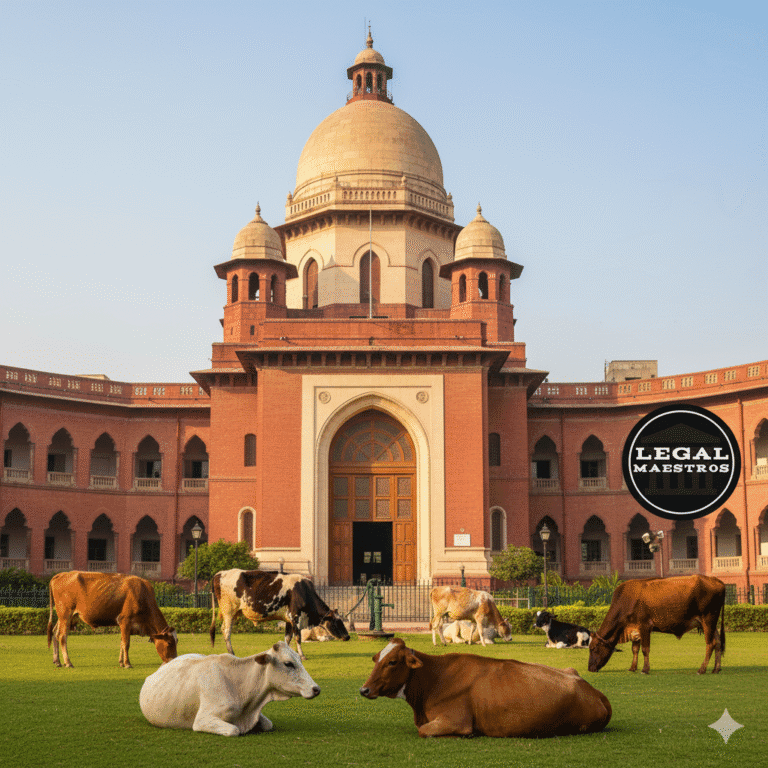In a landmark case before the Kerala High Court, whether serving GST notices through WhatsApp was legal was challenged. This arose when Mathai M.V., a truck owner based in Ernakulam, had his vehicle (KL-31 J-5759) seized by the State GST officials. The lorry, contracted by Petroliv Petroleums to carry bilge water from INS Vikramaditya in November 2024, was held back on tax evasion charges by the consignor. Later on, a confiscation order was issued on December 21, 2024, in terms of Section 130 of the Central Goods and Services Tax (CGST) Act, 2017.
Mathai, the petitioner, had claimed he had no tax evasion and was simply the owner of the vehicle. He alleged that he never got any proper notice about the confiscation and thereby, suffered revenue loss. The GST Department, however, argued that notice was issued to the truck driver as well as forwarded to Mathai through WhatsApp.
Rationale
The core legal question was whether service of notice over WhatsApp is a valid means of communication under Section 169 of the CGST Act. Section 169 lays down certain means for serving notices, such as direct delivery, registered post, and email, but does not include instant messaging apps like WhatsApp.
For any queries or to publish an article or post or advertisement on our platform, do call at +91 6377460764 or email us at contact@legalmaestros.com.
During the COVID-19 pandemic, there had been temporary permission for the service of legal notices electronically, including through WhatsApp, owing to practical limitations. The issue before the Kerala High Court, though, was whether the practice could be allowed even after the pandemic, particularly if the statute did not expressly permit it.
Significant Arguments
Petitioner’s Side
- Mathai’s counsel argued that no notice under Section 130 was served to him, and he was not given an opportunity to be heard before the confiscation order was passed.
- The petitioner emphasized that mere WhatsApp communication, especially when not prescribed by law, could not substitute for statutory notice, and this violated principles of natural justice.
Respondent’s Side
- The GST Department insisted that the driver had been called, his statement taken, and notices sent repeatedly to Mathai via WhatsApp.
- They contended that under the circumstances, particularly during and after the pandemic, such electronic communication shall amount to valid service.
Judgment of the Court
The Kerala High Court, consisting of Chief Justice Nitin Jamdar and Justice Basant Balaji, held that service by notice over WhatsApp is not a valid mode under Section 169 of the CGST Act.
The Court noted:
- Though WhatsApp communication was allowed amid the COVID-19 pandemic as an exception, the same is not a statutorily accepted mode of service under the CGST Act after the pandemic.
- The authorities neglected to serve notice on the petitioner by any of the modes specified under Section 169.
- Section 169 notice is a condition precedent to proceedings for confiscation under Section 130, and non-issuance of such notice makes the whole proceeding void.
Consequently, the Court dismissed both the April 11, 2025, single-judge order and the December 21, 2024, order of confiscation. The matter was remitted to the competent authority with directions to serve a fresh notice on the petitioner and provide him with an opportunity of hearing within three weeks of his appearance.
Legal Implications and Analysis
What the Lower Court Said
A single-judge bench of Kerala High Court had previously found that the non-delivery point was untenable and rejected the petition. The lower court more or less accepted the GST Department’s contention that WhatsApp communication was adequate for delivery of notice, particularly in view of the pandemic situation.
What the Division Bench Held
The division bench overruled the lower court and stressed strict adherence to statutory formalities. It made it clear that:
- Statutory provisions for notice service cannot be watered down, even to promote administrative convenience.
- The right to receive adequate notice and an opportunity to be heard is elemental and basic to natural justice principles.
- The employment of WhatsApp or such other platforms, unless statutorily governed specifically, cannot serve as a substitute for the obligatory modes of service listed in the act.
Broader Legal Context
This ruling supports the Supreme Court’s argument that notice service through WhatsApp or email is only valid if there is express authorization by law. The Registrar of the Supreme Court has had it clarified earlier that this service is not recognized under current rules, further enforcing the requirement for statutory compliance on the use of legal communications.
Other High Courts also concurred with the same view. For example, the Gujarat High Court set aside GST proceedings in which only WhatsApp service had been sent, affirming that such service was only allowed under the pandemic and should be accompanied by statutory modes such as registered post or email.
Practical Impact
- The GST authorities shall strictly comply with the statutory modes of service in accordance with Section 169 of the CGST Act.
- Taxpayers should receive adequate notice and hearing opportunities before punitive measures such as confiscation.
- The ruling enshrines the role of procedural protection and natural justice in tax administration.
Conclusion
The Kerala High Court ruling is a strong reaffirmation of procedural law and the rights of taxpayers. By declaring GST notices communicated through WhatsApp invalid, the Court has established the principle that administrative convenience should not take precedence over legal requirements. The ruling acts as a warning to authorities to adhere strictly to procedural necessities so that fairness and justice are maintained in tax proceedings.
Sources
- Mathai M.V. v State of Kerala, Kerala High Court, 2025 (unreported) available at https://www.barandbench.com/amp/story/news/notice-sent-via-whatsapp-invalid-under-gst-act-kerala-high-court accessed 10 July 2025.
- Notice on WhatsApp invalid under CGST Act: Kerala High Court, The Hindu BusinessLine (Kerala, 10 July 2025)
- Supreme Court: WhatsApp Service of Notice Not Valid, LiveLaw (Delhi, 2 May 2024)







